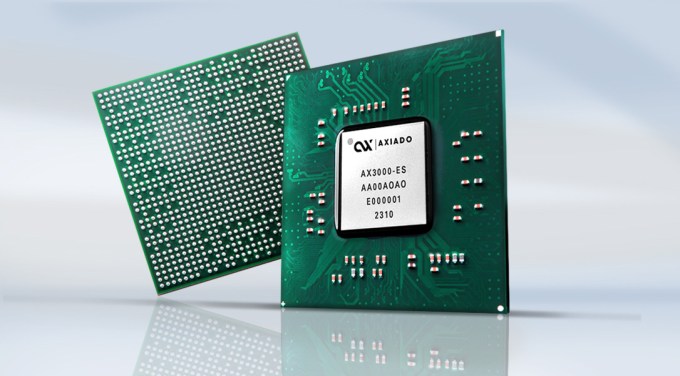Axiado claims its chip can prevent cyberattacks

Cyberattacks are on the rise. In Q1 2024, organizations experienced an average of around 1,300 attacks per week. The cost of attacks is climbing, as well. Per Statista, cybercrime-related losses could surge to over $13 billion by 2028.
Software is one way to combat these attacks. Hardware is another. Startup Axiado is a proponent of both, having built a business out of designing “security” chips and apps to leverage them.
Founded in 2017, Axiado makes chips to secure devices ranging from data centers to 5G base stations. “Our solution gives companies the power to fully secure their digital infrastructure end-to-end,” CEO Gopi Sirineni told TechCrunch.
In some machines, the boot sequence — the initial start-up process — is vulnerable to attack, Sirineni explains, because the machines don’t check whether the sequence has been tampered with. Granted, in recent years, more secure boot chip- and software-based technologies have risen to prominence, but they’re far from universally deployed, Sirineni says.
Axiado’s chip aims to protect against boot-level attacks by authenticating boot-level updates before they’re executed, and by regularly checking the integrity of the boot sequence. Sirineni claims that this prevents boot-level attacks from penetrating systems in which Axiado’s chip is installed.
The chip also handles runtime security — that is, security for software, apps, and workloads post-boot. In this way, it’s comparable to chips like Microsoft’s Pluton, Google’s Titan, and Apple’s T2.

Sirineni says that Axiado’s chip employs root-of-trust technology, which cryptographically protects against hardware tampering. In addition, the chip drives Axiado’s cybersecurity monitoring platform, which tries to detect potentially malicious activity in data patterns.
“Without revealing too many details, we use AI engines to learn a platform’s behavior and compare to blacklisted patterns provided by the customer,” Sirineni told TechCrunch. “We won’t replace all the software-based ransomware attack solutions, but we’re complementary to port-of-entry protection and act as last line of defense.”
Custom silicon can improve security — but it’s important to note that it isn’t a panacea.
In 2020, researchers found an “unfixable” flaw in Apple’s T2 that could open devices up to the very threats that T2 was designed to prevent. Supply chain issues have led to secure boot failings, as well — for example, in instances where vendors haven’t followed best practices.
Axiado claims its chips haven’t been defeated — yet. But that could simply be a consequence of their relatively small install base.
Recently, to tap the massive investment in AI data center infrastructure, Axiado launched a system that dynamically adjusts data center cooling to reduce costs. (Cooling is often a major line item in data center operations — and an environmental headache.) Axiado’s system leverages the company’s chip to measure and adjust cooling automatically based on workloads, similar to systems from startups like Phaidra.
Clearly, Axiado has a finger in many pies. And that seems to be serving it well, particularly as open security chip projects like Google’s OpenTitan nip at its heels. Axiado has a partnership with manufacturing firm Jabil to develop server cybersecurity solutions, and it recently raised $60 million in a Series C funding round.
Maverick Silicon led the round with participation from Samsung Catalyst Fund, Atreides Management, and Crosslink Capital.
Sirineni says that the new cash, which brings Silicon Valley-based Axiado’s total raised to $140 million, will be put toward go-to-market efforts and expanding Axiado’s ~100-person workforce across its San Jose, India, and Taiwan offices.
“We’ve been sampling product for a year now,” Sirineni said. “This money will be used to take product to mass production and start revenue generation in 2025.”
Source: https://techcrunch.com


